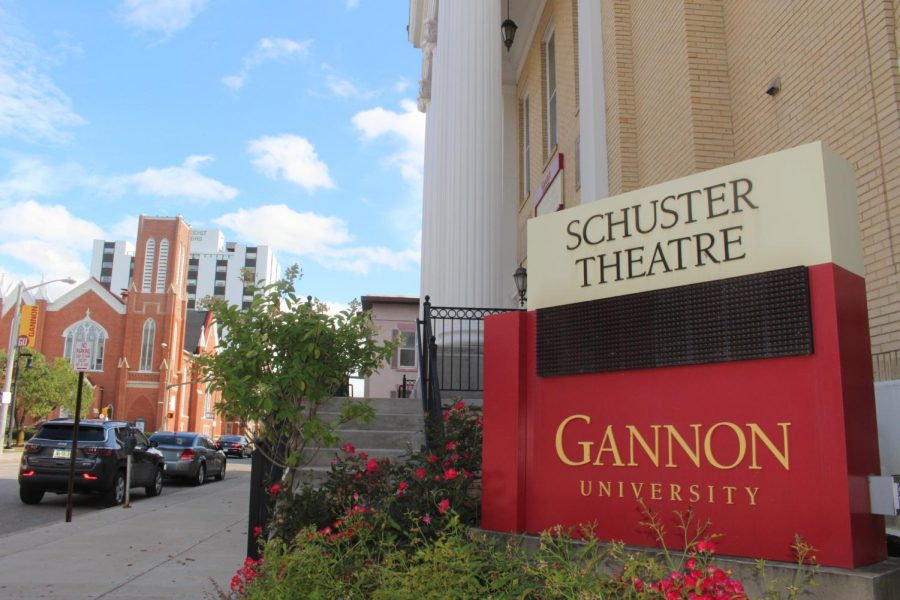Theater perseveres through the pandemic and beyond
How local performances stand the test of time
February 3, 2021
Historically, plagues have proven to be prosperous for the theater community, not in terms of money, but the richness of new ideas it brings.
“King Lear,” a story of a king ravenous for power, built upon his egotistical agenda, was written in a period when rulers went mad clinging to control in the middle of a plague. Moreover, “Hamlet” explores the themes of grief and death from Shakespeare’s own experience as his son died of the bubonic plague.
One of the most influential playwrights, Shakespeare introduced these themes along with classically known monologues and the overall genre of tragedy, partially as a result of the plague outbreaks he experienced within his lifetime.
The independent variable in history falls within its ability to repeat. Each time, the adaptation pushes creative minds outside the comfort zone that they so often dwell in, but once out, the genie cannot go back in the bottle. Oftentimes we forget that some of the most notable works of art come from times of historical distress, but fortunately, what has been dubbed the “new normal” of the 21st century seems to be an increasingly familiar place for creative minds to find new outlets. Whether it’s coercing traditional theater to turn digital or reconfiguring the meaning of interactions between characters, the COVID-19 pandemic has unleashed a beast that may transform theater beyond the days of quarantine.
This begs the question of what we will take away from the current pandemic and how it will affect theater for generations to come.
In the midst of “Tiger King” reruns and family walks down the block, directors and writers alike were busy thinking of ways to bring theater to an audience so dispersed.
In April, Britty Lea, Dramashop member and filmmaker, refused to let COVID-19 take the spotlight, producing an entirely online adaptation of “Silent Sky.”
“Silent Sky,” as Lea produced it, was done over Zoom, utilizing digital art and monologues to convey its meaning. The true story of Henrietta Leavitt follows themes of feminism and bigotry as she is portrayed as a woman in the early 1900s, struggling to prove her worth in the observatory at Harvard among the status quo of well-educated white men.
Lea took on a new meaning from the play, hyper focusing on a line from the script, “Afar but not apart.” During the pandemic, this message rings true as we find ourselves apart from each other, yet not apart because we are able to connect over technology and over our similar circumstances. Although different times, the juxtaposition of past and present uncovers the depiction of an individual struggling to move past the challenges of the time period.
Persevering in the time of heightened social discourse, Shakespeare’s “Twelfth Night” took on a new meaning when Lea paired up with Gannon University’s Schuster Theatre. In the original, Illyria is presented as a region on the Balkan Peninsula where the audience first encounters Viola, shipwrecked off the coast and afraid she has lost her brother. Viola then disguises herself as a man to seek the help of Lady Olivia. The Schuster Theatre adaptation introduced Illyria as a social platform: think Myspace meets Tumblr. The digital platform allowed the audience to observe the interactions between characters while they took on the journey of finding their identities in an online dimension. This type of performance might not have come to fruition without the pandemic.
As everyone quarantined within their houses, these different digital experiences were pushed beyond their normal streaming qualities to really expand on what is traditionally thought of as the theater.
Working together, the cast not only utilized, but paid homage to, other social media sites TikTok, Instagram, Venmo and Twitch. The production explored the aspect of gender and cross-dressing in the era or social networking rather than the 1600s. It brought up points of inquisition about who we really are and how we present ourselves online, especially during COVID-19 when that may be our main source of information and interaction.
The event itself was livestreamed over Facebook, something the Schuster Theatre did not do previously. It has since used Facebook streaming for a plethora of reasons and events. This is an aspect of community theater that truly enhances the experience in several ways. Different communities are now able to watch local productions from states, or even countries, thousands of miles away.
Schuster Theatre closed out the school’s fall semester by taking a stand, projecting its production on the theater since it could not gather within the theater. The play was named “Love Notes” and was composed of several pre-recorded monologues from students and actors, voicing what they miss most about the theater. It wasn’t just a piece of mourning though; it was also a celebration. Woven within degrees of sadness and confusion came notes of hope.
“Love Notes” explained to its audience how many personal connections there are to the theater and how it’s constantly changing and evolving to make those stories known. People responded to questions of how theater affects their lives, what they miss most about pre-pandemic performances, and most importantly, what theater means to them. The responses emphasized that theater has many different faces, but it has a collective meaning to so many people.
That collective meaning became clear as community members flocked to the theater, setting up their socially distant chairs and even watching from the balcony off the library as each monologue was projected on the side of the theater.
Even after the pandemic passes, the perseverance the theatrical community has shown will surely carry it into new territory. Publishing companies will start to acquire hybrid licenses as digital theater is seen as something beyond a “placeholder” for traditional theater. The pandemic is proving to just be another boundary to break through as the concept of theater is broadened to address the issues of the time while telling a story.
In the generations to come, theater will hopefully take on a new meaning, much like it has in the past. The one thing that won’t change is theater itself. In its essence, “theater” is a form of performance art without a permanent location or guidelines. It cannot be bottled or contained. It is continuously changing as the minds of its creators do, evolving even in the time of a global pandemic.






JEFFREY ALAN WISNIEWSKI • Feb 4, 2021 at 8:37 am
Well written piece Chloe. Kudos to you and to the Schuster Theatre folks.
Chloe Forbes • Feb 6, 2021 at 4:07 pm
Thank you!
-Chloe